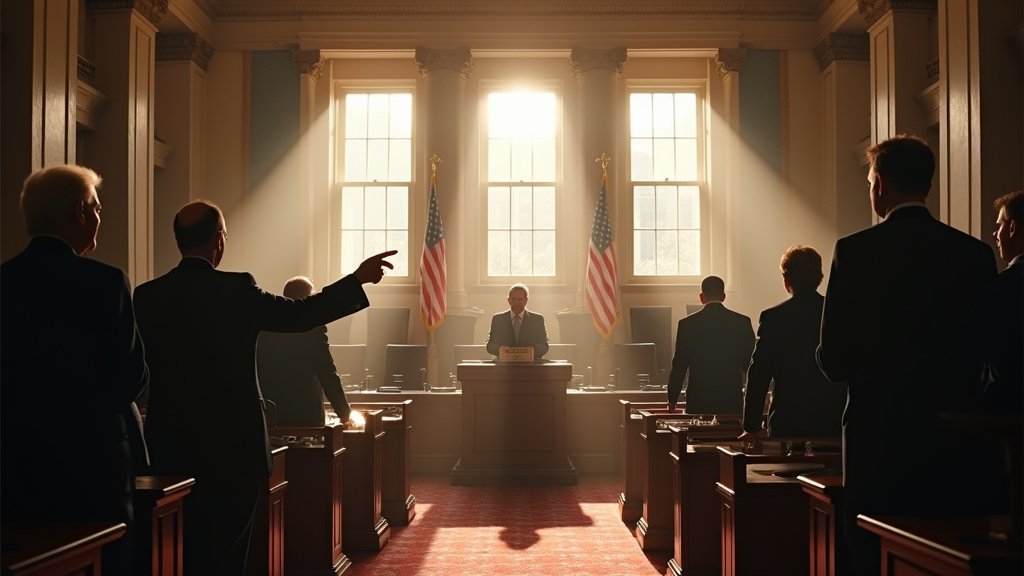On June 2, 2025, a segment on CBC Radio, hosted by Jayme Poisson and featuring insights from Alex Shephard, a senior editor at The New Republic, delved into recent significant developments shaping the U.S. political landscape under the Trump administration. The discussion navigated complex issues ranging from high-profile personnel shifts to escalating legal confrontations and perceived institutional conflicts, offering a snapshot of the dynamic and often turbulent environment within American politics.
Elon Musk’s Departure from White House Engagements
A prominent point of discussion on the June 2nd CBC Radio segment centered on the reported departure of entrepreneur Elon Musk from advisory or other engagements with the White House. While the specifics of Musk’s role or the precise nature of his disengagement were not detailed beyond his ‘departure,’ such moves by high-profile figures can signal shifts in administration priorities, policy disagreements, or personal circumstances. Musk, known for his leadership in technology and innovation sectors through ventures like Tesla and SpaceX, had, in previous periods, held roles or participated in advisory councils related to economic development, manufacturing, or technological advancement under various administrations. His reported exit, as discussed by Poisson and Shephard, highlights the often fluid and sometimes unpredictable nature of external expertise interfacing with federal governance and can spark considerable public and political speculation regarding underlying causes and potential impacts on future policy directions or initiatives he may have been associated with.
Trump Administration Tariffs Face Legal Challenges in Court
Another critical area explored was the ongoing legal scrutiny surrounding various tariffs imposed by the Trump administration. The summary noted that these tariffs are currently facing legal challenges ‘in court.’ This typically signifies that companies, industry groups, or even foreign entities are contesting the legality or implementation of these trade measures through the judicial system. Such legal battles often hinge on interpretations of U.S. trade law, administrative procedure, and sometimes international trade agreements. Challenges can be filed in specialized courts, such as the Court of International Trade, or potentially other federal courts depending on the nature of the claim. The outcome of these legal proceedings holds significant weight, as court rulings could potentially uphold, modify, or strike down certain tariffs, impacting import costs, international trade relations, and the economic competitiveness of affected industries. The discussion underscored the complex interplay between executive trade policy and judicial oversight in the American system.
Perceived Conflict: Trump and Harvard University
The CBC Radio segment also touched upon a ‘perceived conflict or “war”‘ between U.S. President Trump and Harvard University. This framing, as presented, suggests a relationship characterized by tension, disagreement, or possibly rhetorical clashes rather than direct, formal antagonism. Conflicts between political leaders and academic institutions, particularly elite universities like Harvard, can arise from various sources. These might include disagreements over policy issues (such as immigration, research funding, or affirmative action), differing perspectives on social or political matters, criticism from faculty or students, or even rhetorical exchanges that escalate tensions. Universities often position themselves as centers of independent thought and critique, which can sometimes put them at odds with political administrations. The characterization of this tension as a ‘perceived conflict’ or even a ‘”war”‘ indicates a significant degree of friction, whether rooted in policy disputes, ideological differences, or public rhetoric, drawing attention to the strained relationship between the executive branch and a prominent pillar of American higher education.
Analyzing the Broader Context
The confluence of these distinct issues – a notable figure’s departure from White House association, the legal challenges to significant trade policies, and a strained relationship with a major academic institution – offers a multifaceted view of the political dynamics prevalent as of June 2, 2025. As highlighted in the discussion between Jayme Poisson and Alex Shephard on CBC Radio, these developments are not isolated events but interconnected threads within the larger fabric of U.S. governance and public life. They reflect ongoing tensions surrounding trade policy, the relationship between the administration and external advisors, and the complex interactions between political power and established institutions like the judiciary and academia. Analyzing these points, as done by experts like Shephard, provides valuable context for understanding the challenges and shifts occurring within the American political landscape.












